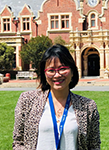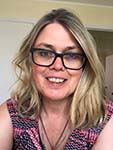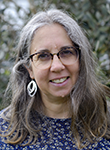National Executive
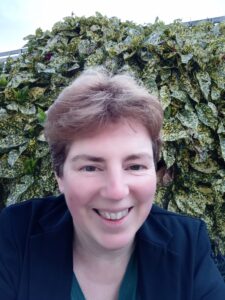
Gwenna Finikin
President
MA (TESOL leadership), BEd, DipTch
My family is from Taranaki and I currently live in Papaioea (Palmerston North), where I am the ESOL teacher at Hokowhitu Primary School. I currently lead the Manawatu Primary ESOL PLC, and have done for several years.
The focus of my Master’s was TESOL leadership. This has worked in well with the several committees I have led, in such areas as adult literacy, and community English teaching.
My primary interests are around ensuring high quality education outcomes for learners through qualified staff, and building relationships across the sectors.
I affirm that there is a strong need for language policy in Aotearoa to continue the regeneration of te reo Māori, strengthen the position of New Zealand Sign Language, and support the maintenance of minority languages. In conjunction with this, language policy and planning must support the development of English proficiency to ensure the success of all in both education and society.
As president of TESOLANZ, I will continue the work of past presidents and serve the stakeholders in the TESOL sector.
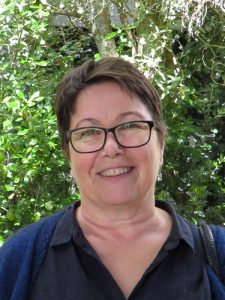 Christine Hanley
Christine Hanley
Secretary & Newsletter Editor
Christine Hanley began her career in education as a trained primary school teacher. After she completed her degree in linguistics and post-graduate study in applied linguistics, she moved into teaching English as an additional language in the tertiary sector. She has taught adult learners from beginner to pre-university entry levels. Other roles she has undertaken include director of a national research project focused on building evaluative capability in schools, coordinator for a consortium of ten high schools, and manager of a government-funded project aimed at building an enterprising culture in high schools. In the past, Christine has chaired the AKTESOL committee while also a member of the TESOLANZ Executive. In 2017, she rejoined the TESOLANZ Executive and was responsible for branch liaison until 2021 when she became secretary. She was also convenor of the CLESOL 2021 conference and is treasurer for the 2023 CLESOL conference committee. As of 2023, she is also editor of the TESOLANZ newsletter.
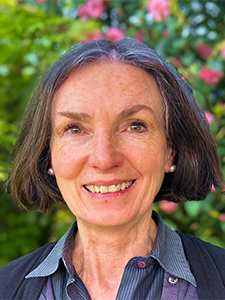 Margi Memory
Margi Memory
Treasurer
CELTA, DELTA 1 & , B.Theo, Dip Commerce, Dip Editing and Proofreading
Margi Memory began her career in English language teaching in 2006. She was concurrently involved with children and youth work, and was part way through a degree in commerce. English as an additional language in the tertiary sector gained her attention through a certain interest in text analysis of ancient languages which was reignited by her degree in theology.
She has taught English as an additional language to adolescent and adult learners from Elementary to Advanced levels in holiday programmes for school-aged and older adults, and IELTS in the private sector.
After the Canterbury earthquakes in 2012 Margi shifted to teaching community classes, ILN, and workplace literacy and numeracy for adult migrants and refugees. She is presently a tutor at the Hagley Adult Literacy Centre in Christchurch and also fills a role as an academic mentor.
‘Learning outside the classroom’ and how to improve facilitation of language acquisition for learners presenting with different neurological factors is a focus. Margi’s understanding of language acquisition has been further enhanced by challenging her own abilities in learning Mandarin as an older adult. She is noticing how it highlights cultural differences and acknowledges how much determined effort English language learners invest in gaining English.
Margi values being part of the wider TESOLANZ community and the CANTESOL branch committee. She has served as CANTESOL treasurer since 2012 and for the 2018 CLESOL conference.
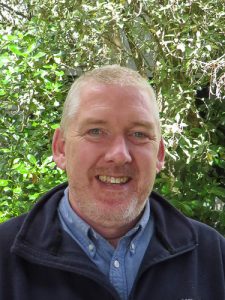 Mark Dawson-Smith
Mark Dawson-Smith
Publications
I have been involved with TESOLANZ since arriving in New Zealand in early 2003, serving as one of the co-Chairs for the 2016 CLESOL conference and serving on the TESOLANZ Exec (looking after publications) since 2019.
My main area of interest is language assessment, which has been fuelled by my involvement in a number of well-known international English language examinations and was capped off when I achieved my MA in Language Testing back in 2013. I’m also heavily involved with the delivery of NZCEL programmes New Zealand-wide, and currently serve as the leader for the national NZCEL Providers’ Forum.
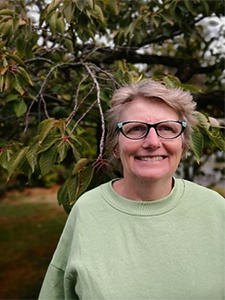 Juliet Fry
Juliet Fry
Special Interest Groups Coordinator
My work has mainly been in the secondary sector, but I have worked closely with ECE, primary, and tertiary colleagues. I have worked as a teacher and Professional Learning and Development (PLD) facilitator in both Auckland and Christchurch. I am currently Head of Department for English as an Additional Language and Pasifika Studies at Riccarton High School in Christchurch. I have previously been a facilitator and team leader in Ministry of Education contracts relating to teaching literacy and meeting the needs of English language learners.
I am really interested in supporting the maintenance and development of home languages alongside learning English. I have been supporting cross-school Lea Faka-Tonga and Reo Kūkī ‘Airani classes for several years and am a big advocate of Pacific Studies in schools.
I see TESOLANZ as an important organisation in providing connections and learning for teachers. I also think that this national body has an advocacy role, communicating about the strengths and needs of the teachers and the learners that we represent.
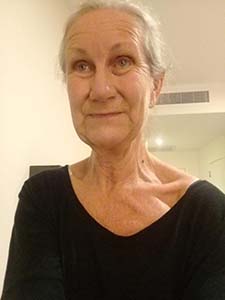 Julie Luxton
Julie Luxton
Branch Liaison
My teaching background is in secondary English Language, English, Social Studies and languages. I have been a middle leader, literacy co-ordinator and academic dean.
I am now working as a PLD facilitator for Evaluation Associates based in Tauranga Moana, having previously worked for the Universities of Waikato and Canterbury in similar roles. I have facilitated PLD in secondary schools in English Language and home-school partnerships, literacy, Te Kotahitanga (culturally responsive practice to raise Māori achievement) and NCEA English. My current role includes PLD in assessment for learning and supporting schools in preparation for NCEA literacy changes, as well as effective use of the Curriculum Progress Tools and e-asTTle to inform teaching and learning. I have a particular interest in assessment and am currently an NZQA English Language and English for Academic Purposes moderator and an IELTS examiner.
I am passionate about supporting teachers – English Language specialists and teachers in all NZ Curriculum learning areas - to meet the language, literacy and cultural learning needs of Aotearoa New Zealand’s increasingly diverse student population using an appreciative inquiry approach. Having lived and worked in Fiji and in Vava’u, Tonga, where my first child was born, I feel a special connection to the Pacific Islands and much of my PLD work has included a focus on raising Pasifika engagement and achievement in the regions.
TESOLANZ has a key role in advocating for English language learners and teachers. I have therefore supported TESOL at branch level for many years and am currently on the BOPTESOL committee. I have been the Secondary SIG liaison person in the past and recently worked in a seconded PLD role on the Executive.
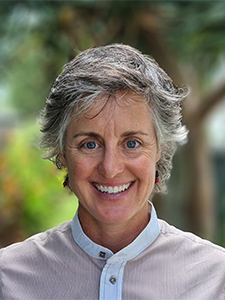 Dr Lucy Macnaught
Dr Lucy Macnaught
Executive Member
Dr Lucy Macnaught is a Senior Lecturer in the role of Learning Advisor for the Learning and Academic Engagement team at Auckland University of Technology. As an educational linguist, Lucy uses theories of language and language development to design and investigate teaching practices in which students are learning English for Academic Purposes (EAP). She is interested in examining 'what' students are expected to produce and 'how' teaching can make these expectations clear. Her research draws primarily on Systemic Functional Linguistics (Applied Linguistics) and Legitimation Code Theory (Sociology of Education). Specific interests include: classroom discourse analysis, multimodal classroom metalanguage, embedded approaches to academic literacy development, synchronous online writing instruction, collaborative writing, and User Experience Design.
Lucy’s current teaching involves collaborating with faculties and the Graduate Research School at AUT to teach academic literacy within coursework and research programs. Lucy has previously lectured in postgraduate programs, including TESOL (University of Technology, Sydney) and Applied Linguistics (University of Sydney), and taught pre-tertiary intensive English language programs for international students. She was previously a member of the AKTESOL committee and is passionate about professional learning that is informed by research.

